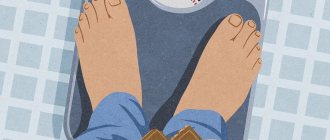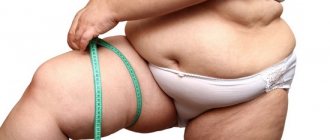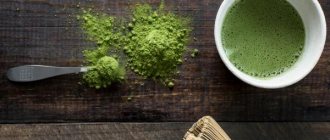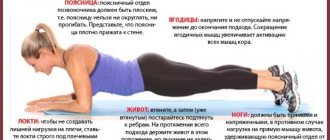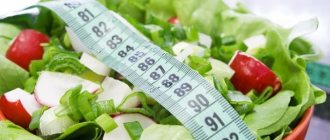Common causes of lack of appetite
It is quite difficult to determine the specific cause of lack of appetite in an elderly person. Most likely, there are several such reasons. Among them are the following:
- pneumonia, influenza, infectious diseases;
- diseases of the heart and vascular system;
- cirrhosis or kidney failure;
- oncological diseases;
- inflammatory processes of the gastrointestinal tract;
- autoimmune diseases;
- diabetes mellitus and endocrine system problems;
- mental disorders;
- some types of dementia;
- side effects of taking certain medications.
This list cannot be considered exhaustive. Often, poor appetite is associated with excessive consumption of sweets or heavy, fatty foods, bad habits and poor lifestyle. It is often simply impossible to single out one of the main reasons from this list.
Physical activity and walking
Parents are surprised when their child, spending all day near the TV or computer, refuses to eat. Why is this happening? Because with little physical activity, the body does not need to replenish energy as often.
The solution to the problem of how to increase a child’s appetite is quite trivial - send the child outside for a couple of hours. For adults the solution is the same. Just look away from the computer, take a walk in the fresh air, do exercises, buy a gym membership.
Consequences of poor appetite
In old age, it is especially important to get the necessary microelements from food. Poor appetite leads to the fact that an elderly person practically stops eating, without feeling the natural need for it. This is fraught with the appearance of the following symptoms:
- gradual and significant weight loss;
- disruptions in the functioning of internal organs and the brain;
- decreased muscle activity and loss of strength;
- problems with musculoskeletal functions.
Anorexia is a critical condition. This disorder is diagnosed in pensioners quite often. Without feeling hungry, a person simply does not eat. He feels no pain, but the weight loss can be fatal. From the outside it may seem that the pensioner is starving himself. But that's not true. He simply has no need for food. In this case, several specialists should help. You should contact a gastroenterologist, endocrinologist and, of course, a psychotherapist.
Vitamins for children
In addition to the compounds listed, children and adolescents should take vitamin A (retinol). It promotes the growth and development of the baby’s body, improves vision, eliminates dry skin, etc.
The best combination is a comprehensive intake of vitamins in conjunction with minerals and other biologically active substances. If the patient does not have certain diseases or other contraindications, vitamins should be taken in a course, according to the instructions.
Tests that must be taken
To clarify the cause of weight loss, it is necessary to undergo an analytical study. The specialist will give you a referral for tests to determine different types of diseases. The blood will show the presence of liver disease, diabetes or hormonal imbalances in the body. A urine test is prescribed if an inflammatory process in the kidneys is suspected. A chest x-ray can help detect lung cancer or incipient pneumonia. In addition, medical procedures will be prescribed:
- Ultrasound of the abdominal organs;
- barium enema;
- liver and kidney function testing;
- studies of thyroid hormones.
Prolonged lack of appetite leads to exhaustion of the body. The manifestation of a lack of vitamins and microelements necessary for the life and functioning of organs is expressed in a violation of their functions. Thus, in an elderly person who eats poorly and suffers from diabetes, vision declines faster and the functioning of the urinary system is disrupted.
Make mealtime an enjoyable experience
How to increase your appetite easily and pleasantly? Cooking and dining with others can help stimulate your appetite more than eating alone. To make your food more appetizing, you can invite friends and family over for lunch/dinner. If they can't come and keep you company, try eating while watching TV.
These strategies can help take your attention away from food. The study found that eating with friends can increase food consumption by 18%, and eating while watching TV can increase food consumption by 14%. Having lunches and meals together, combined with entertainment, can help you enjoy food more and improve poor appetite.
Let's summarize:
If you eat with friends and family or eat in front of the TV, you can distract yourself from the food you are eating, which will encourage you to eat more of it.
Ways to increase appetite
To restore a healthy appetite, you shouldn’t just force a pensioner to eat. You need to understand what symptoms bother him and prevent him from feeling hungry.
Often older people complain of nausea. In this case, it is necessary to use medications that relieve it. If dementia is diagnosed, the specialist will prescribe artificial nutrition procedures using a gastronomic tube to introduce high-calorie and nutritional mixtures. In case of exacerbation of inflammation of the appendix, this problem will have to be solved promptly. Hormonal imbalances should be corrected with hormone replacement therapy.
To improve the well-being and appetite of an elderly person, use these methods.
Include protein-rich dishes in your menu. There are protein drinks and nutritious snacks. Add yeast supplements and zinc-rich foods to your food. Before meals (about half an hour before), offer the pensioner herbal drinks. These can be infusions of chamomile, lemon balm, dill or peppermint.
Nutritionists advise using not only absolutely safe, but also very useful products.
Use of bitterness. The addition of wormwood helps stimulate appetite. Its infusion should be consumed 30 minutes before meals, 1 teaspoon diluted in a glass of clean water. This stimulates sufficient secretion of gastric juice. Adding chicory. In addition to restoring appetite, the use of this seasoning helps to naturally normalize blood pressure. Lemon juice in water. Before eating, give the pensioner a glass of warm water with the juice of half a lemon. This drink invigorates and improves appetite. Dandelion rhizomes. In spring, an infusion of dandelion roots is an ideal appetite stimulant. To prepare it, grind the roots of the plant. Pour 2 teaspoons of this mixture into a glass of cold water. Leave it to infuse in a dark place. After a day, the infusion is ready for use. It should be taken before meals, a quarter glass. Carrot and watercress juice. Juice squeezed from 4 carrots and a bunch of watercress should be taken half an hour before each meal. Yarrow juice. Squeezing the juice from this plant helps restore appetite in the elderly. It should be taken 1 teaspoon before meals. Centaury, sage, angelica and rue. This recipe is very effective for restoring appetite. You need to mix 10 grams of these crushed herbs and pour the mixture with 400 milliliters of boiling water. After 40 minutes, strain the broth. The finished drink can be taken three times a day, several sips. Wormwood, yarrow, willow and dandelion. The decoction is prepared according to the same rules as the previous one. You need to take half a glass of it before meals.
Do not forget that there is “imaginary anorexia.” In this case, the elderly person pointedly refuses to eat as a sign of protest. Most often, such pensioners lack attention and communication. Secretly from his surroundings, he can eat food. These disorders require correction by a psychotherapist. Of course, you need to surround the elderly person with maximum care and demonstrate love and respect every day.
Classification of drugs that increase appetite
Drugs that increase appetite are classified into:
- centrally acting agents – direct stimulants of the hunger center: cyproheptadine;
- means of reflex (peripheral) action - preparations of plant origin containing bitterness: wormwood herb, calamus rhizome, dandelion root, yarrow herb, centaury herb.
In addition, there are medicinal herbal infusions - delicious infusions, which, in addition to bitters, include plants containing essential oils: lemon balm, mint, fennel, anise, cloves, cinnamon, nutmeg, thyme, sage.
To increase appetite, combination drugs are also used, which include cyproheptadine, L-carnitine, L-lysine, thiamine (vitamin B1), pyridoxine (vitamin B6), cyanocobalamin (vitamin B12).
Appetite is also increased by drugs containing ethyl alcohol, an antiallergic drug - H1-histamine blocker and mast cell membrane stabilizer ketotifen, insulin preparations, anabolic steroids, as well as royal jelly.
"Voracious appetite" in older people
Overeating is no less a problem. In old age, it is especially dangerous due to pathological weight gain and loss of activity. Sometimes this happens due to memory impairment. The pensioner simply forgets what he recently ate. Increased appetite can also be a consequence of diseases of various digestive organs.
Due to worries, sometimes caused by far-fetched worries, pensioners simply begin to “eat up” stress. This fact cannot be ignored. Pay attention to it and find out what is causing your worries. Often grandparents do not talk about them directly.
Another “reason” for gluttony can be a disease of the endocrine system. In this case, only the intervention of a specialist who can provide qualified assistance will correct the situation. No amount of persuasion or explanation has any effect on a person whose metabolic processes are disrupted.
Use herbs and spices
Another remedy that improves appetite is herbs and spices. Some foods can slow digestion and produce gas, which can lead to a feeling of heaviness, bloating, and decreased appetite.
A type of seasoning called carminative herbs and spices may help reduce bloating and flatulence, and improve appetite. They can also stimulate bile production to facilitate the digestion of fats.
Here are some examples of carminative herbs and spices that are classified as appetite-increasing foods:
- fennel
- peppermint
- black pepper
- coriander
- mint
- ginger
- cinnamon
In addition to helping reduce the feeling of heaviness in your stomach, these herbs and spices can help make your meals more delicious and appealing. When your food smells and tastes good, it can create a good appetite.
Bitter tonics are another type of herbal preparation that can help increase appetite by stimulating the production of digestive enzymes. Here is an appetite-improving herb that is classified as a bitter tonic:
- gentian
- Blessed Knikus
- centaury
You can start supplementing with some of these herbs, spices, or bitter tonics by adding them to your meals or consuming them as teas or tinctures.
Let's summarize:
Some herbs, spices and bitter tonics are good for increasing your appetite, aiding digestion, reducing flatulence and making your food more palatable.
Balanced food composition
A lack of protein can lead to poor health. With a lack of them in the diet, pensioners complain of weakness and fatigue, almost constant fatigue and frequent dizziness. At the same time, the process of tissue destruction of many organs occurs and their functionality decreases. To prevent this from happening, you need to eat meat. It is also rich in calcium, which is good for bones, and iron, which is necessary for hematopoietic processes.
A meat dish should be on the menu every day. If it is difficult for a pensioner to chew it, care must be taken to eliminate this problem. Liver dishes should be offered to an elderly person no more than once a week. Protein is also found in milk, cheese and eggs.
The absorption of beneficial microelements in old age deteriorates by 2 times. Doctors attribute this to loss of appetite, worsening living conditions and the need to take large amounts of medication. That is why it is extremely important that a pensioner receives vitamins in sufficient quantities. Each of them is necessary.
Vitamin A is an excellent antioxidant. It provides protection against some forms of cancer. Found in fresh fruits, vegetables, milk, liver and egg yolks. This vitamin is “responsible” for healthy skin and good vision.
Vitamin D ensures the functioning of the musculoskeletal system. It is produced under the influence of sunlight. Rarely going outside, an elderly person should receive a large amount of it with food. It is found in fish and shrimp.
Vitamin C improves immunity and restores appetite. It is found in citrus fruits, broccoli, kiwi, black currants and strawberries. Men need more vitamin C because the male body absorbs it slightly less well than the female body.
Vitamin E has antioxidant and restorative properties. It is found in large quantities in vegetable oils and margarines.
Vitamin B12 contributes to the excellent condition of connective tissues. Due to a decrease in the amount of hydrochloric acid in the stomach of an elderly person, the process of absorption of this vitamin worsens. It is recommended to take it as a dietary supplement.
Vitamins for adults
Vitamins to increase appetite in adults should contain the following compounds. Along with stimulating appetite, they play an important role in many important processes.
- Ascorbic acid is indispensable in maintaining immunity and metabolic processes. Contained in citrus fruits, berries, bell peppers, tomatoes, carrots, etc.
- B1 (Thiamin). Contained in nuts, carrots, spinach, pork, beef, yeast. Participates in carbohydrate and lipid metabolism.
- B3 (Niacin). Forms salts with acids and bases. It is found in sufficient quantities in yeast, liver, milk, meat, eggs, buckwheat, and legumes. Dilates small blood vessels, used in case of malnutrition. It is not recommended for children under 12 years of age and patients with stomach and duodenal ulcers.
- B5 (Pantothenic acid). Participates in metabolic processes. Contained in legumes, nuts, buckwheat, kidneys, hearts, cauliflower, garlic.
- B7 (Biotin). Soluble in water and alcohol, slightly soluble in ether. Included as an important component in enzymes that control protein and lipid balance in the body. Contained in liver, kidneys, legumes.
- B12 (Cyanocobalamin). Takes an active part in biochemical processes. Contained in liver, seafood, sea fish, dairy products.
Prevent constipation or dehydration
Constipation in old age is caused by a decrease in the amount of mucus in the intestines. That is why it is important that the pensioner eats food of a delicate consistency, eats soups, drinks water, teas and drinks. Be sure to eat vegetables and fruits.
Liquid food and sufficient water ensure normal kidney function. Since fewer nephrons are produced in old age, care must be taken to ensure that the elderly person drinks regularly. You need to drink clean water often, but in small quantities. It is better if it is warm.
Proper diet and nutrition
By following the principles of a healthy diet, you will forget about problems with appetite:
- eat small portions 5-6 times a day (approximately 300-400 ml per meal);
- eat a lot of vegetables and fruits;
- cook at home if possible;
- exclude all yeast and flour (replace with whole grain bread);
- give up sugar, salt, black tea;
- in the morning - only carbohydrates (oatmeal, buckwheat);
- drink water after 25-30 minutes. after eating;
- eat at the same time;
- no watching movies or social networks while eating.
A balanced diet contains sufficient amounts of all nutrients, water necessary for the body, and covers the daily calorie requirement.
Macronutrients:
- 30% of the diet is proteins;
- 30% of the diet is healthy fats;
- 40% of the diet - carbohydrates and fiber;
Micronutrients are vitamins and minerals, of which there are more than 100 types. Our body needs 13 vitamins daily: A, E, D, B1, B2, B3, B9, B12, P, N, C, B4, B6 and 15 micro/macroelements: P, NA, K, Ca, Fe, Cu , Mn, Mo, Se, F, I, CI, Cr, Mg.
Thanks to water, all minerals and nutrients are dissolved in the body.
Nutritional value is not measured in calories, but in the amount of protein, fat and carbohydrates. Empty calories do not provide any benefit to the body. These are fast foods, sauces, alcohol, sweet drinks.
When creating a menu, the first thing you need to do is calculate how many calories you need per day. We take this value as 100%. We eat 6 times a day: breakfast, first snack, lunch, second snack, dinner, third snack. We need to determine what percentage of meals will occur.
Breakfast is the most important for us, so we take 30% of the norm. For lunch and dinner we allocate 25%. The remaining 20% remains for 3 snacks.
Stress management
Every day we are faced with many stressful situations that have a negative impact on our mental health. Suppressing and accumulating negative emotions is not an option at all; they need a way out.
8 methods can help:
- Breathe evenly - a simple method will help you calm down. According to philosopher Robert Cooper, diaphragmatic breathing oxygenates the blood, which helps you instantly relax. Such breathing exercises will normalize high blood pressure and reduce stress levels. Controlling your breathing will instantly help you get rid of anxiety. Continue breathing until you can inhale and exhale for 6-8 counts.
- Love the blue light. Have you ever wondered why the screens of modern devices - computers, laptops, tablets and smartphones - emit unobtrusive blue light? But scientists from Harvard University figured it out and found that blue color helps people relax faster after stress.
- Smile. Sometimes the source of your smile is pleasure. Scientists at the University of Kansas took 169 subjects and proved in practice that smiling helps lower heart rate. The main thing is that it does not cause stress to others.
- Here's a visualization technique to help you relax: imagine a quiet, peaceful place or a pleasant and exciting situation.
- Do some physical exercise. The body will increase the production of happiness hormones and burn hormones produced by the body during stress and nervous tension.
- Practice aromatherapy. Some scents can increase levels of norepinephrine, a hormone responsible for mood, and relieve stress. The scents of rosemary, lemon balm, geranium, mandarin, orange, basil, and bergamot essential oils effectively reduce blood pressure.
- Take a warm shower or bath. Contact with water helps calm the nerves.
- Make a change. Rearranging objects in the room will have a beneficial effect on your emotional state.
So, many factors influence appetite, namely psychological and physiological state, medications, deficiency of vitamins and minerals, and improper daily routine.
Try eating a large meal when you are hungry. Allocate the remaining time to cocktails and high-calorie drinks. If you find it difficult to eat, be sure to consult a doctor.
Sports nutrition for weight gain
There are three sports supplements for gaining weight:
- Whey Protein;
- creatine;
- gainer (protein + carbohydrates).
Additional sources of nutrients can be BCAA amino acids and beta-alanine. These supplements are needed to increase energy during strength training, but do not affect the process of weight gain.
Whey protein is needed to speed up metabolism and muscle growth. The daily protein requirement for an athlete is 1.5-2.5 grams of protein per 1 kg of weight. Whey protein is absorbed in minutes, while regular food takes more than an hour. Protein is consumed not only on training days. 1 scoop of sports supplement is equivalent to a serving of meat.
Creatine retains fluid in the muscles, which makes them appear larger. The substance is able to optimize energy processes in muscles, increase strength indicators, due to which muscles will grow faster.
Gainer consists of protein and carbohydrates. Carbohydrate is a source of energy and is necessary for recovery after exercise. The mixture is also quickly absorbed by the body. Taken on training and rest days as an additional source of nutrition.

